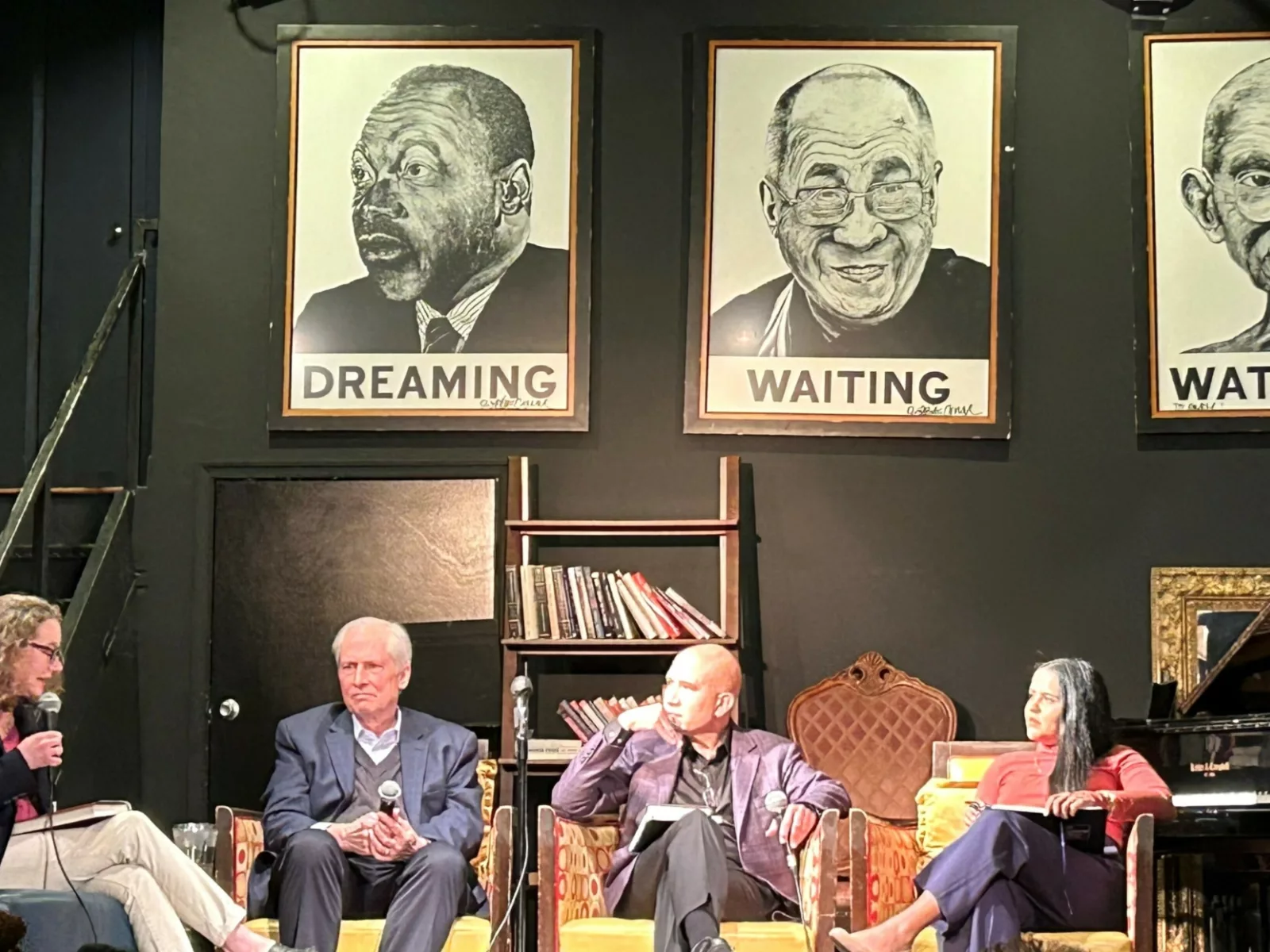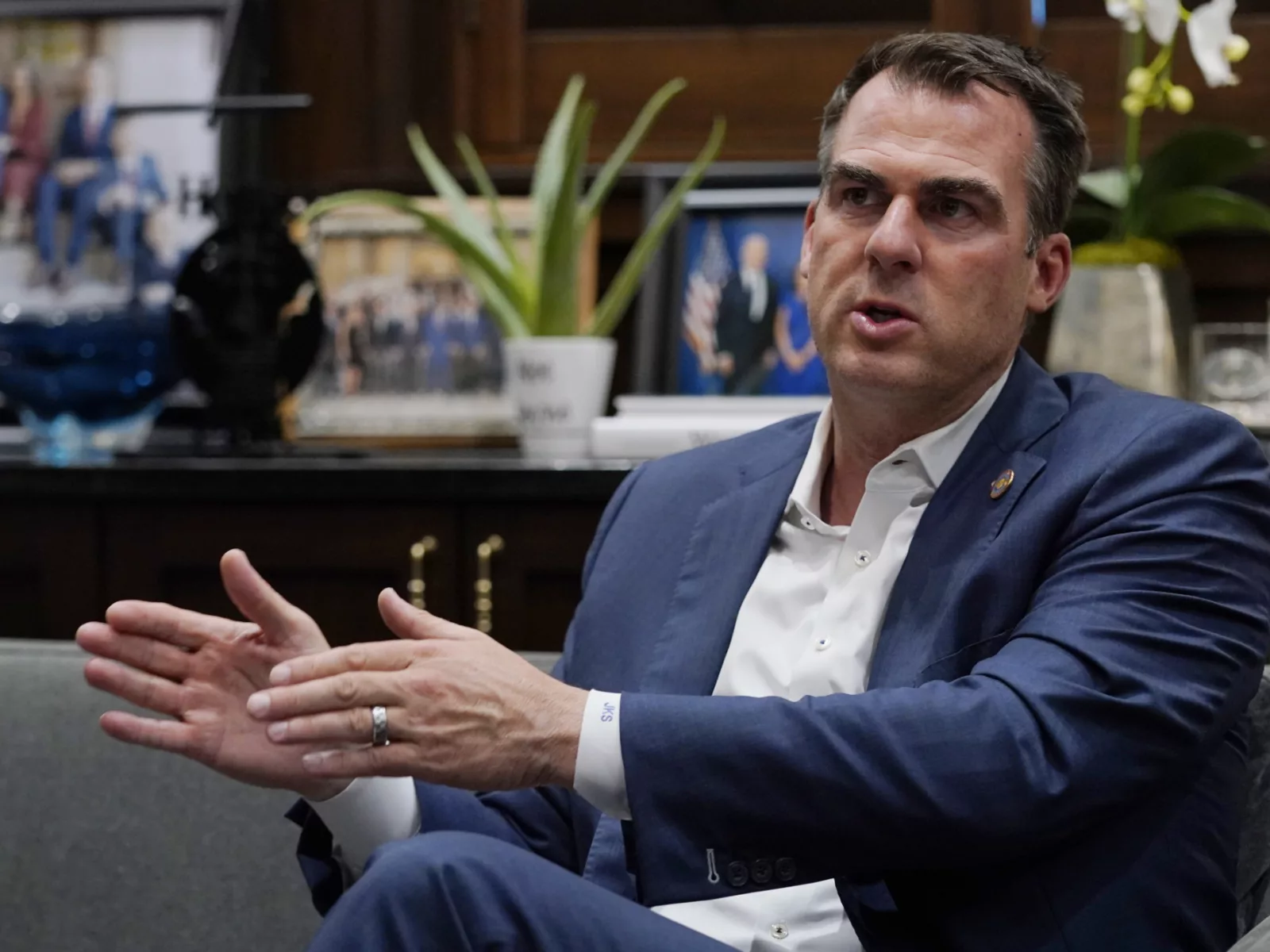One year after graduating from the University of Oklahoma, Daniel Pae landed a new job in the state Capitol building in Oklahoma City. He wasn’t a staffer, researcher, or reporter.
At age 23, Pae had been elected as a state representative, becoming the youngest serving member at the time. Following his narrow victory in the 2018 election — winning by only 42 votes — Pae, a Republican, wasn’t resigned to be a backbencher due to his age or experience. He decided to join a bipartisan coalition taking on criminal justice reforms. Since then, he has helped to pass legislation aimed at reducing the prison population, prioritizing rehabilitation, and investing in reintegration programs.
Pae isn’t a singular case. This August, he joined nearly 70 other young lawmakers from across 34 states in Indianapolis for Future Summit 2023, hosted by Future Caucus (formerly the Millennial Action Project). At this convening, the next generation of political leaders shared their vision for tackling the many pressing issues facing Americans. Criminal justice reform was at the top of the agenda for this bipartisan group of legislators, given the large-scale social and economic impact of violence and mass incarceration in their communities.
As part of its mission to invest in evidence-based solutions, Arnold Ventures (AV) sponsored a panel discussion on criminal justice reform to help inform Future Summit 2023 participants about key topics and opportunities for reform.
It is important for organizations such as Future Caucus to train, equip, and empower these lawmakers with innovative evidence-based ideas to transform the criminal justice system.Emily Mooney Advocacy Manager for Criminal Justice at Arnold Ventures
The discussion included a prompt for lawmakers to consider the actions their own state had taken in several criminal justice policy areas, barriers to reform, and the type of research that could best impact policy decisions.
“We believe millennial and Gen Z lawmakers are the future of our democracy,” said Emily Mooney, advocacy manager for criminal justice at Arnold Ventures, who spoke at the summit. “It is important for organizations such as Future Caucus to train, equip, and empower these lawmakers with innovative, evidence-based ideas to transform the criminal justice system into one that promotes community safety and second chances while minimizing injustice.”
While one in five legislators in America are either part of the Gen Z or millennial generations, collectively, they were responsible for authoring one out of every three bipartisan bills passed last year.
“Our generations are statistically better at working across the aisle than the generations who have come before us,” said Layla Zaidane, president and CEO of Future Caucus, in a statement. “The problems we face are too complex for us to try to solve them with one hand tied behind our backs, with only one set of ideas or perspectives at the table. When we work together, small actions lead to big changes in ways we never could imagine.”
A history lined with bipartisan legislative wins
The Millennial Action project, Future Caucus’ predecessor, was founded in 2013 by a group of Missouri college students who had become increasingly concerned about the future of America. These students recognized that in order to change course, the involvement and impact of the country’s young leaders would be crucial. Working with national and local millennial legislators, the group aimed to bridge the partisan divide among America’s lawmakers while giving them vital resources to enact change.
number of legislators in the United States who are either part of the Gen Z or millennial generations
Criminal justice reform emerged as a key area for Future Caucus lawmakers, many of whom believed that encouraging investments in rehabilitative services made more sense than outdated “tough on crime” policies. Over the past few years, members of the organization have worked to address sentencing reform, recidivism reduction, and justice reinvestment, among other issues.
For example, in 2017, Louisiana Rep. Ted James, a Democrat, and Rep. Tanner Magee, a Republican, partnered on a bill that prohibited asking about criminal records on college applications and created opportunities for higher education for formerly incarcerated individuals. And in 2019, former Criminal Justice Reform Advisory Council Co-Chair Leslie Herod of Colorado passed bipartisan bills focused on pretrial release and limiting the use of wealth-based bail for low level offenses, among others.
In 2020, Future Caucus formed the criminal justice reform council as part of its efforts to advance national conversations with young lawmakers through regular meetings that include talks from experts and discussion among legislators. Pae serves as the co-chair of the council. He said he was inspired to enact criminal justice reforms in his own state after witnessing success stories in other conservative states such as Louisiana and Texas. On the criminal justice reform council, Pae said legislators “bounce ideas off one another and learn from each other as far as what policies work and do not work.”
“I know that the debate around this issue is whether one is soft on crime or tough on crime,” he continued. “I would submit that a third viable option is that you can be smart on crime, you can support public safety initiatives, but you can also support the notion that people who have committed nonviolent offenses should not have sentences that last for decades. There are alternatives such as drug diversion programs and proactive investments in mental health and reintegration programs that will pay dividends to the taxpayers.”
Next legislative session, Pae is planning to introduce a bill that would help incarcerated individuals transition to the workforce by providing them with financial aid for their education.
“We share our experiences”
Future Caucus members may come from across the country, representing a wide range of jurisdictions in different states, but together they’re able to share what works and how they were able to pass bills. Pennsylvania Rep. Torren Ecker, a Republican who was a member of Future Caucus’ criminal justice reform council until 2022, shared how Pennsylvania was the first state in the nation to pass a clean slate bill in 2018, mandating that certain offenses be erased from a person’s record after 10 years as long as they meet a set of conditions. Ecker recalls that through the criminal justice council, he heard from legislators in other states who are trying to pass similar bills. “We share our experience with how we got that across the finish line, and in a truly bipartisan and almost unanimous fashion.”
We share our experience with how we got that across the finish line, and in a truly bipartisan and almost unanimous fashion.Torren Ecker Former member of Future Caucus’ criminal justice reform council and current Pennsylvania state representative
Ecker is also a member of Pennsylvania’s Future Caucus, a state-level, bipartisan coalition of young lawmakers who work with each other on policy goals. Future Caucus is responsible for at least 33 local Future Caucuses in states across America. “I think at the end of the day, people want to see the government being efficient and working for them,” said Ecker. “And the only way you’re going to do that, especially here in Pennsylvania currently, is to work across the aisle and get some things accomplished. That doesn’t mean you give up on your convictions and your beliefs.”
Going forward, Future Caucus is planning to expand the power of young lawmakers through the creation of several new programs. The organization is starting a bootcamp that will teach lawmakers holistic approaches to legislation and offer practical advice on issues such as wellness and burnout. It will also establish a database of stories on lawmakers’ successes and provide playbooks for tackling issues. One of the biggest additions is the creation of the Future Caucus Innovation Lab, which launched last month. The lab will connect members to a policy repository, experts, live briefings, and fellow legislators working on similar issues. The goal of the lab is to provide lawmakers with unbiased evidence-based ideas as they explore critical issues.
“This policy accelerator is our direct response to the pressing need for unbiased, evidence-based solutions that can address generational challenges and rejuvenate the integrity of American politics,” said Zaidane. “By connecting bipartisan legislators with policy experts and each other, our objective is to foster powerful conversations that lead to tangible advancement.”

















